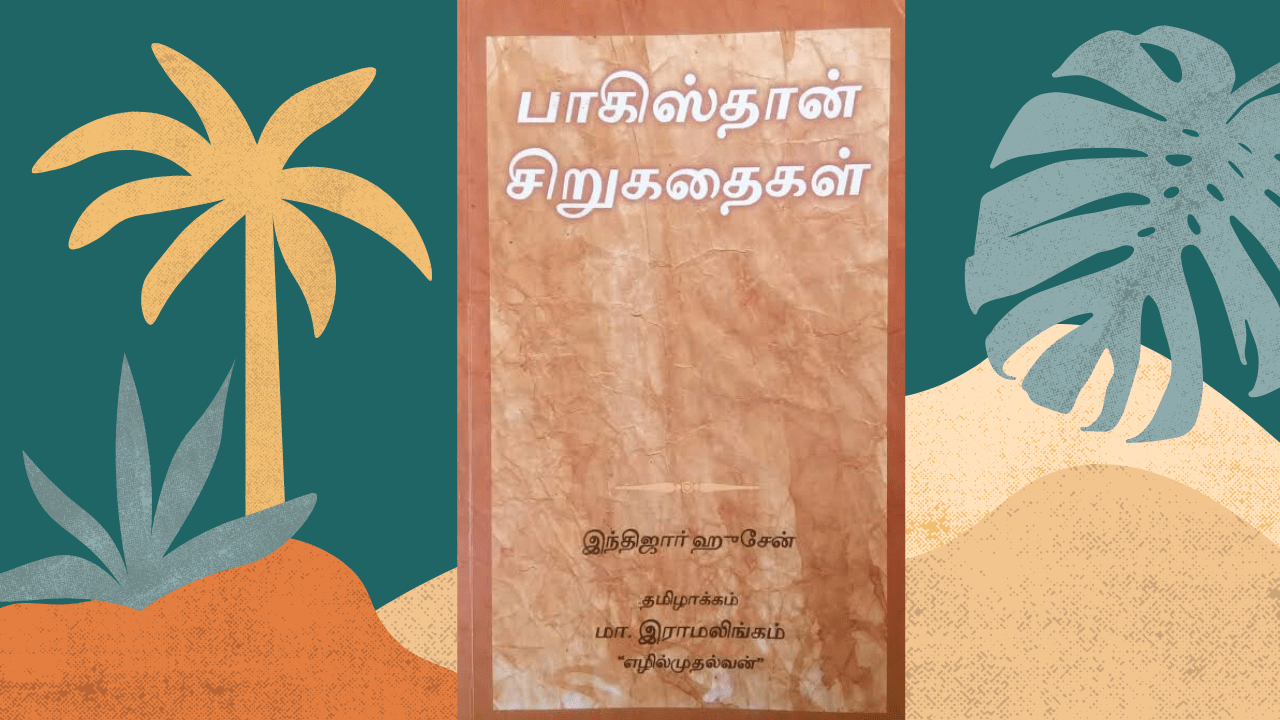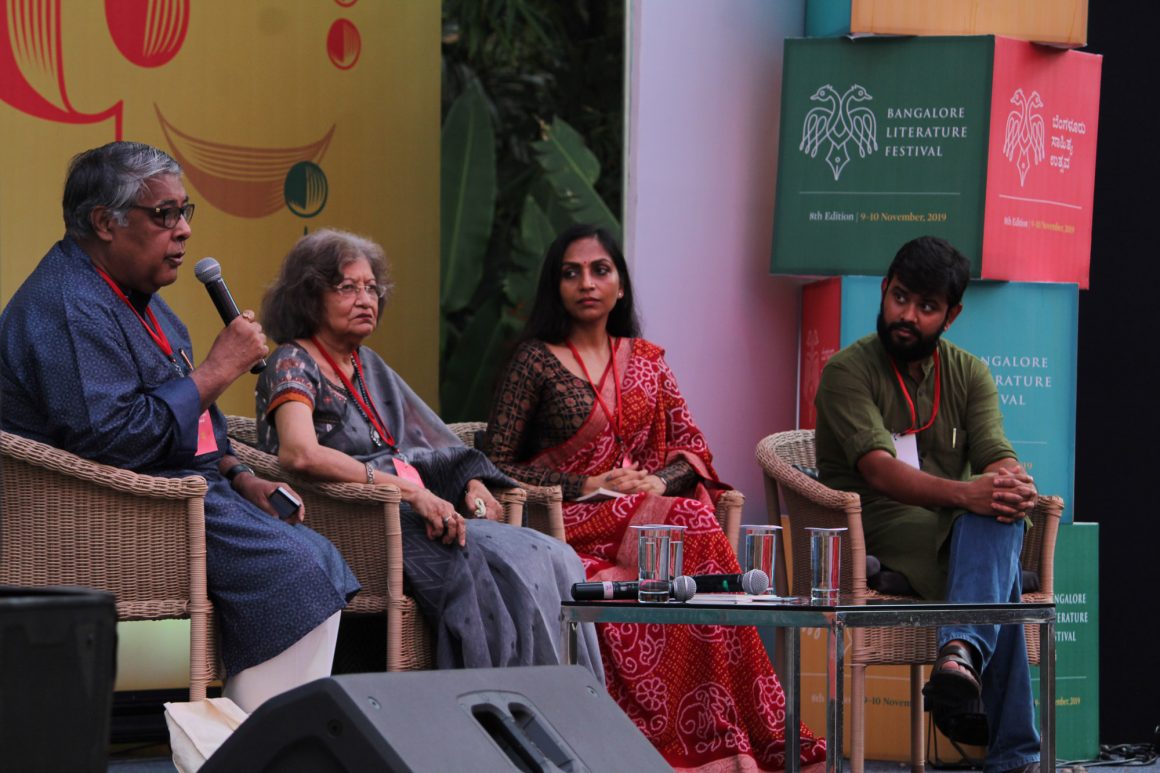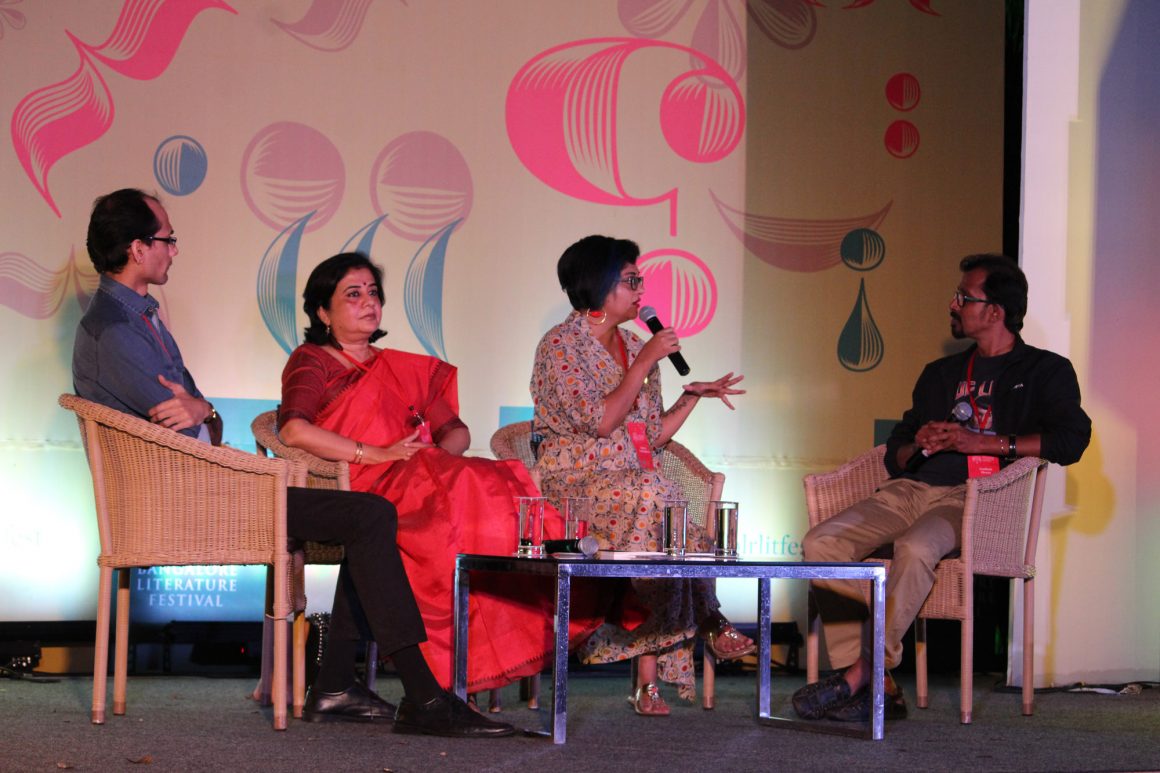இந்த உலகின் மிக விசித்திரமான, அதி சூட்சமமான படைப்பு மனம். ஹரப்பா நாகரீகத்தின் பழமையில் லயித்தவண்ணம் யமுனை நதிக்கரையில் நடைபோடும். மறுகணமே பாண்டிபஜாரின் கரும்புசாறு விற்பனையாளனோடு கலந்துரையாடும். அடுத்தகணம் நாளைய ப்ரொஜக்ட் டெட்லைன் சிந்தனைக்குள் மூழ்கிவிடும். சூடுபடும்போதெல்லாம் சுருண்டு கொள்ள, பழகிய வாசனை கொண்ட போர்வை தேடும். பரிதவிக்கும்போதெல்லாம் ஓளிந்து கொள்ள மனம் தேடும். அகங்காரத்தின் உற்சவத்தில், வெறுமையின் வெயிலில், நோய்மையின் பெரும்சுமையில், பயத்தின் கொடுங்கோல் ஆட்சியில் இந்த மனம் எப்படியெல்லாம் சிந்திக்கும், தன்னை சுத்தியிருக்கும் மனிதர்களிடம் எதை தேடும், நிகழ்வுகளுக்கு பின்னிக்கிடக்கும் உணர்வுகளை எப்படி கையாளும் என்பதை வெவ்வேறு சூழலில் வாழும் வெவ்வேறு மனிதர்களைக் கொண்டு 32 கதைகளாக இங்கே கொடுத்திருக்கிறார்கள். இந்த புத்தகத்தை வாசித்துமுடித்தபின் நீங்களும் பால்வெளியின் கடைசி நட்சத்திரத்திலோ அல்லது பாலைவனத்தின் ஈச்சமர நிழலில் நிற்கக்கூடும்.
இந்த 32 கதைகளும் வெவ்வேறு சூழலில், வெவ்வேறு காலத்தில் வாழும் மனிதர்களின் மனப்போராட்டங்களை, சக மனிதர்களோடும் சமுதாய மரபுகளோடும் அவர்களுக்கு ஏற்படும் உணர்வுசிக்கல்களை அதன் இயல்பு மாறாமல் பேசுகிறது. குறிப்பாக தால் பாலைவனம் , அறியா பருவம், கழுவாய், பூனைக்குட்டி, ஓர் அன்மாவின் அவலம், சைபீரியா, நெற்றிக்கண், அரிப்பு, கெளவரம், அப்பா ஆகிய கதைகள் என்றும் நம் மனதோடு நிற்கும்.
தால் பாலைவனம்
தால் பாலைவனத்தில், ரயில் பாதை அமைக்கப்பட்டபோது ஏற்பட்ட இடையூறுகளும் அதன் பின்னே இருக்கும் கதைகளும் நிச்சயம் சுவாரஸ்மானவை. இது நம் நீலி கதை போல் தலை தலைமுறையாக முன்னோர்களால் சொல்லப்பட்ட ஒன்றாகவும், திரிக்கப்பட்ட ஆயினும் அவசியப்பட்ட ஒன்றாகவும் இருந்திருக்கும் என்றே தோன்றுகிறது.
ரயில் பாதை அமைக்கப்பட்ட போது ஏற்பட்ட சிக்கலுகளுக்கும், ரயில் பாதை தொடங்கிய பின் நடந்த உயிரிழப்புகளுக்கும் ஹஜரத் பீர் அவர்களின் கோபம் தான் காரணம் என்றெண்ணிய மக்கள். ரயிலில் செல்லும் போதெல்லாம் தாயத்துடனே சென்றிருக்கிறார்கள். அந்த கதைகளையும் அந்த இழப்புகளையும் சிறு வயதிலிருந்த பார்த்து வந்த மிஸ்ரிக்கு ரயிலே ஒரு பிசாசு தான். வாழ்க்கை முழுவதும் அந்த பிசாசை அவர் எப்படி தவிர்த்தார். பயம் கடந்து அவர் தேடிப்போனபோது அந்த பிசாசு அவரை எப்படி துரத்தியது என்பதே இந்த கதையின் சுவாரஸ்யம். ரயில் பாதை அமைப்பதில் ஏற்படும் சிக்கல்களை வாசிக்கும்போது, நாமே அங்கு இருப்பது போல் ஒரு பிரமை இராமலிங்கம் ஏற்படுத்திவிடுகிறார். இந்த கதையை படித்தபின் அந்த ரயிலில் ஒரு முறையாவது பயணித்துவிட வேண்டும் என்ற எண்ணம் எனக்குள் மேலோங்கிவிட்டது (நிச்சயமாக தாயத்துடன் தான்).
அறியா பருவம்
ஒரு இளம் பெண் மருத்துவர், தற்காலிக பணத் தேவைகாக தூர கிராமத்தில் வசிக்கும் நிலச்சுவான்தாரின் மனைவிக்கு பிரசவம் பார்க்க செல்கிறாள். குடும்ப கலாச்சாரம் என்ற பெயரில் பிற்போக்குதனத்தில் மூழ்கியிருக்கும் மக்களின் அறியாமை தாளமுடியாமல் திணறிப்போகிறாள்.. பிரசவத்தின் வலி புரியாமல் சிக்கல்கள் உணராமல் அவர்கள் நடத்தும் சடங்குகளும் கொண்டாட்டங்களும் அவளை திக்குமுக்காட செய்கிறது. பிரசவம் என்பது மறுபிறவி எனில் அது மரணம் வரை அந்த பெண்ணை இழுத்துசென்று விடுவித்திருக்கிறது என்று தானே அர்த்தம். அவள் வலியை அவள் அந்தரங்க நேரத்தை எப்படி இவர்களால் இப்படி அலெட்சியபடுத்தமுடிகிறது. கொண்டாட்டம் என்பது ஏன் எப்பவும் அநீதிகளுக்கான ஆரம்பமாக அமைந்துவிடுகிறது. இப்படியெல்லாம் ஒரு கொண்டாட்டம் தேவைதானா? எண்ணற்ற கேள்விகளையும் எனக்குள் விதைத்து சென்றது இக்கதை.
பூனைக்குட்டி
கய்யூம் என்னும் ஏழை சிறுவனுக்கு பூனை வளர்க்க வேண்டும் என்று கொள்ளை ஆசை. பற்பல போராட்டத்திற்குப்பின்னர், அவனை வந்தடையும் பூனைக்குட்டியும் அவன் உயிரும் எப்படி அதிகாரவர்க்கத்தால் சூரையாடப்படுகிறது என்பதே இக்கதை. கய்யூமின் பூனையாகவோ அல்லது அந்த பூனையை அவனுக்கு மீட்டுக்கொடுக்கும் போராளியாகவோ என்னை மாற்றிவிட்டது இக்கதை.
ஓர் ஆன்மாவின் அவலம்
பிழைக்கத்தெரியாத அல்லது கையாலாகாத அல்லது தன்னை தொலைத்த அப்பாக்களின் ஒரே ஆயுதம் மெளனம். அப்படிப்பட்ட அப்பாக்களுடன் காதல், சிநேகம், கோபம், வெறுப்பு, விரக்தி, இயலாமை, காழ்புணர்ச்சி என தன் அத்தனை உணர்வுகளாலும் போராடி பின் புலம்பலும் கண்ணீருமே வாழ்கையாய் மாறிப்போகும் அம்மாக்களை நாம் நிறைய பார்த்திருக்கிறோம், வாசித்திருக்கிறோம். ஆனால் இது அப்படிப்பட்ட அம்மா அப்பாக்களின் கதையல்ல அவர்கள் மகளின் கதை. அம்மாவின் புலம்பலும் அப்பாவின் மெளனமும் அவளை வெறுப்படையச் செய்கிறது. சுவாரஸ்யமற்று, உரையாடலற்று வெறுமை மட்டுமே குடியிருக்கும் வாழ்ககையில் அவள் எதையோ தேட தொடங்குகிறாள். அவளின் தேடலை, தனிமையை, வெறுமையை அவள் உடலை இவ்வுலகம் பயன்படுத்திக்கொள்கிறது. அதை எவ்விதமறுப்பின்றி அவள் அனுமதிக்கிறாள். தீராத வலியை உண்டு செரிக்க அவளுக்கு அது தேவைப்படுகிறது. வாழ்க்கை முழுவதும், வெவ்வேறு வகையில் அவள் பிறரால் பயன்படுத்திக்கொள்ளப்படுகிறாள். அவளை பிரிந்து சென்ற, அவளை துரத்தியடித்த, அவளுக்காக வரிந்துக் கட்டிக்கொண்டு வக்காலத்து வாங்காத யார் மீதும் அவளுக்கு கோபமோ வருத்தமோ இல்லை. அவளுக்கு யார் மீதும் நம்பிக்கையோ காதலோ இருந்ததேயில்லை. அவள் யாரையும் காட்டிக்கொடுத்ததுமில்லை. புருவம் உயர்த்தி நாம் முகம்சுழித்த எத்தனை மனிதர்களுக்குபின் இப்படி ஒரு கதை இருக்ககூடும். எத்தனை மனிதர்கள் இப்படி வெறுமைக்கும் வலிக்கும் பலியாகிக் கிடப்பார்கள். அந்த வெறுமைப்பெருங்காட்டில் வாழ்வதே பெரிதல்லவா? அவர்களை நாம் ஏன் ஆராய்ந்து பார்க்க வேண்டும்? சலனமற்ற முகங்களுக்குள் இன்னும் எத்தனை எத்தனை வலியோ?
பாகிஸ்தான் மக்கள் இடையே ஒரு வழக்கம் இருந்திருக்கிறது (இப்போது இல்லாமல் போயிருக்கலாம்). “ஒரு உயிர்பலிக்கு அல்லது இழப்புக்கு பதிலாக, தங்கள் மகளை அந்த வீட்டு ஆண்களுக்கு (வயது வித்தியாசமில்லாமல்) திருமணம் செய்துக்கொடுக்க வேண்டும்.” இது ஒரு தீர்ப்பு ஆக சொல்லப்பட்டுவந்திருக்கிறது. நம் ஊரில் வன்புணர்வு செய்தவனுக்கே பெண்ணை கல்யாணம் செய்து வைப்பது போல். பெரும்பாலும் இப்படி திருமணம் செய்துக்கொண்டு எதிரி வீட்டுக்கு செல்லும் பெண்கள் தீராத பாலியல் துன்புறுத்தலுக்கும் வன்முறைக்கும் உள்ளாகி மரணித்துவிடுகிறார்கள் அல்லது சுயபிரக்ஞையற்றவர்களாக மாறிவிடுகிறார்கள். அப்பா, பகவான்தாஸ் மேஸ்திரி மற்றும் கெளரவம் போன்ற கதைகள் இந்த வழக்கத்தால் பாதிக்கப்பட்ட பெண்களை மையமாக கொண்டு நகர்கிறது.
இதுவரையில் நான் தமிழ் இலக்கியத்தில் வாசித்திராத ஒரு தளம் உளவியல் ரீதியான கதைகள். ஒருவரின் மனப்போக்கை இப்படி வார்ததைகளாக கொண்டு வந்துவிட முடியும் என்று நான் நினைத்துக்கூட பார்த்ததில்லை. சைபீரியா, மரவட்டை, கழுவாய், அரிப்பு – இந்த கதைகள் அனைத்தும் ஒருவரின் மனப்போக்கை அப்படியே பதிவு செய்கிறது.. உதாரணத்திற்கு அரிப்பு என்னும் கதையில் ஒரு அரிப்பு நோயின் ஆரம்பக்கட்டத்தில் இருக்கும் ஒருவன், ஊனமானவர்களைத் தேடித்தேடி பார்க்கிறான். அவர்களுக்கு ஓடி ஓடி உதவிசெய்கிறான் தன் நோயோடு அவர்களை ஒப்பீட்டு பார்க்கிறான். எங்கு சென்றாலும் அவன் ஊனமானவர்களையே தேடுகிறான். எல்லோரிடமும் ஏதோ ஒரு ஊனம் இருக்கிறது அது அவன் கண்ணுக்கு சுலபமாக புலப்படுகிறது. இப்படியாக நகர்க்கிறது அந்த கதை.
இந்த புத்தகத்தில் நான் தேடிய எல்லாம் இருந்தது. என்னால் தேடப்பட வேண்டியவையும் இருந்தது. ஆயினும் காதல் மட்டும் இல்லை. ஒரு அழகான காதல் கதை இருந்திருக்கலாம். மனதின் சூட்சமங்களை, மனிதர்களின் உணர்வுகளோடு அது நடத்தும் கண்ணாமூச்சி ஆட்டத்தை அதன் இயல்பு மாறாமல் சுகிக்கவிரும்புவருக்கும், பிற மரபுகளை அறிய விரும்பவர்க்கும் இந்த புத்தகம் நிச்சயம் பிடிக்கும்.
நூல் பற்றிய குறிப்பு:
இந்திஜார் ஹுசேன் & ஆஸிப் ஃபரூக்கி ஆகிய இருவரால் உருதுவில் தொகுக்கப்பட்டு எம். அஸதுத்தீன் அவர்களால் ஆங்கிலத்தில் மொழிபெயர்க்க பெற்ற இந்நூலை மா. இராமலிங்கம் எழில்முதல்வன் அவர்கள் ஆங்கிலத்தில் இருந்து தமிழில் மொழியாக்கம் செய்திருக்கிறார். சாஹித்திய அகாடமி வெளியீடான இப்புத்தகம் பின்வரும் தளங்களில் கிடைக்கப்பெறுகின்றது.
https://www.exoticindiaart.com/book/details/pakistan-chirukathaigal-in-tamil-short-stories-MZG405/
http://www.indiaclub.com/Pakistan-Chirukathaigal-TAMIL_p_391294.html
https://amzn.to/2WFmAlW
நூல் மதிப்பீட்டாளர் பற்றிய குறிப்பு:
சத்யா, வார்த்தைகளினால் வலிகளை வழியனுப்பி வைக்கும் கூட்டுப் பறவை. எந்த உதடுகளாலும் மொழியப்படாத மனித உணர்வுகளை புத்தகங்களில் தேடுபவள். சங்கீத பிரியை. இயற்கையின் சங்கேத மொழி அறிய முயற்சிபவள்

































































